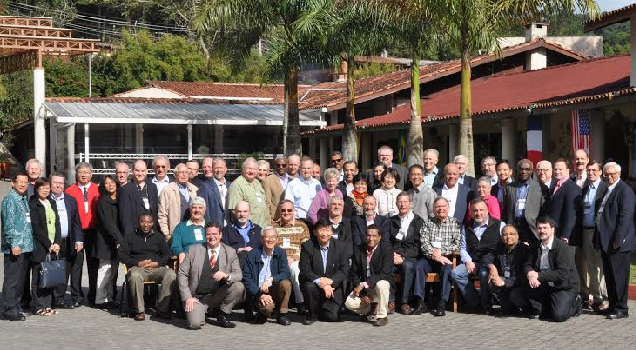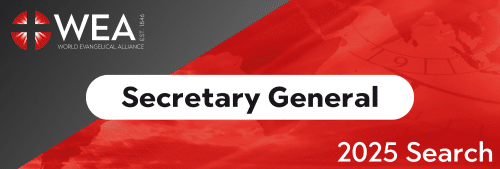Theological Commission of WEA in Bible engagement
Fifty-six key influencers of global theological education, representing every continent, gathered 2-6 June in São Paulo, Brazil, for the Lausanne Consultation on Theological Education: Toward Biblical Partnership in Global Theological Education. The group included seminary presidents, institutional principals, heads of accreditation bodies, and leaders in theological education supporting agencies.
In addition to The Lausanne Movement, the consultation was sponsored by The World Reformed Fellowship, World Evangelical Alliance, Overseas Council, Fellowship of Evangelical Seminary Presidents, Langham Partnership, and International Council of Evangelical Theological Education (ICETE), WEAs global partner for theologcial education representing appr. 1000 theological schools, and was hosted by Mackenzie Presbyterian University.
Chaired by Sam Logan, President of the World Reformed Fellowship, a members of WEA, and hosted by Davi Gomes, chancellor of Mackenzie Presbyterian University, the consultation served as a follow-up to the first Lausanne Consultation on Global Theological Education in 2012 where 63 key decision makers and leaders of organizations that provide, support, or accredit theological education, from 31 countries, gathered on the campus of Gordon-Conwell Theological Seminary in South Hamilton, MA, USA.
At that gathering, it was clear that the challenges and opportunities for theological education in the 21st century required the intentional building, and continued working, of a global community. To that end, this consultation in São Paulo was a strategic gathering which allowed for exploration and emphasis on practical steps forward which would enhance South-East-West-North partnerships.
Participants had their roots in looking toward Scripture and reflection on the biblical and missional foundation for theological education. Envisioning the unrealized opportunities and possibilities that biblical partnerships could achieve gave space for dreams. Finally, case studies and focus groups were utilized to examine challenges—critical topics such as models of institutional partnerships, partnership in the digital age, the role that accreditation plays in facilitating or hindering partnerships, the sharing of resources, and partnership between formal and informal theological education. Videos of the presentations will soon be available.
In his plenary, Thomas Schirrmacher presented the view of WEA and its Theological Commission. Appr. 50.000 people are baptised each day in evangelical churches worldwide, that do not come from a Christian backround and do not have any basic Bible knowledge, said Schirrmacher. This makes Bible engagement the most important task oft he worldwide evangelical movement. Any means to enlarge the numbers of Bible teachers, pastors and leaders has to be used in a broad global cooperation and also a growing ccoperation between resident schools, TEE, distance programmes and programmes within local churches.
Any tension or fight between those approaches are to costly! Otherwise the evangelical movement will loose one of its distinctives, being a Bible movement. „And if we loose the Bible“, Schirrmacher stated, „it is only a matter of time to loose the other distinctive of our movement, the emphasize on a personal relationship to our saviour Jesus Christ, as heresies easily destorte his picture and make other persons or goals more important.“
The ten members of the steering committee of the consultation elected Dr Rosallee Velosso Ewell to become a second representative of the Theological Commission of WEA in the committee beside Thomas Schirrmacher.






Stay Connected